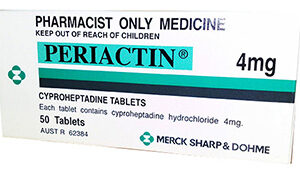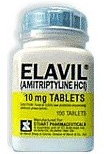Brand Name and Generic
Mestinon is a brand name for the medication pyridostigmine, which belongs to a class of drugs known as cholinesterase inhibitors.
Therapeutic Indications
Pyridostigmine is primarily indicated for the symptomatic treatment of myasthenia gravis. It is also used in the management of postural tachycardia syndrome (off-label) and for the reversal of neuromuscular blockade after anesthesia.
Available Dosage Forms
Mestinon is available in several oral dosage forms: tablets (60 mg), extended-release tablets (180 mg), and syrup (60 mg/5 mL). An injectable form (pyridostigmine bromide injection) is also available for use in specific situations.
Mechanism of Action
Pyridostigmine inhibits acetylcholinesterase, the enzyme responsible for the degradation of acetylcholine, thereby increasing the amount of acetylcholine available at the neuromuscular junction, facilitating neuromuscular transmission.
Administration Guidelines
Mestinon tablets and syrup should be taken orally with water. For myasthenia gravis, doses typically start low and are increased gradually based on clinical response and tolerability. The extended-release tablet should be swallowed whole, not chewed or crushed, to maintain the extended-release properties.
Dosing Information
The initial dose for the symptomatic treatment of myasthenia gravis is typically 60 mg every 4 to 6 hours for immediate-release formulations. Extended-release tablets may be given at a dose of 180 mg every 6 to 8 hours. Dosing may differ according to patient response and tolerance.
Adjustment for Renal Impairment
Dosing adjustments may be necessary for patients with renal impairment. As pyridostigmine is primarily excreted by the kidneys, reduced renal function can lead to increased drug levels and prolonged action.
Use with Other Medications
Pyridostigmine can interact with other medications, such as other cholinesterase inhibitors, muscle relaxants, or anticholinergic drugs. This may necessitate dosage adjustments and close monitoring for enhanced or diminished effects.
Adverse Reactions
Common adverse effects of Mestinon include muscarinic symptoms like abdominal cramps, increased salivation, nausea, vomiting, diarrhea, increased bronchial secretions, miosis, and bradycardia. Nicotinic side effects may include muscle cramps and twitching.
Monitoring Parameters
Patients on Mestinon should be monitored for improvements in muscle strength and endurance, signs of cholinergic crisis (overdose), which is characterized by excessive muscle weakness, and signs of anticholinergic effects (underdose). Regular blood testing may be required to monitor for hematologic abnormalities.
Storage Recommendations
Mestinon should be stored at 20 to 25°C (68 to 77°F) and protected from moisture. The syrup formulation should be stored in the refrigerator, and any unused portion should be discarded after 30 days.
Pregnancy and Lactation
Pyridostigmine has not been shown to cause direct fetal harm when used in pregnancy. However, it crosses the placenta and should only be used if clearly needed. Pyridostigmine is excreted into breastmilk, and while effects on nursing infants are unknown, caution is advised.
Missed Dose Management
If a dose of Mestinon is missed, it should be taken as soon as possible, unless it is closer to the time of the next dose. In that case, skip the missed dose and resume the regular dosing schedule. Do not double doses to catch up.
Overdose Management
In case of overdose, signs may include muscle weakness, cholinergic crisis, or respiratory paralysis. Immediate medical attention is required, and atropine is the antidote for severe cholinergic reactions. Supportive measures, such as artificial respiration, may be necessary.
Pharmacokinetic Properties
Mestinon is rapidly absorbed from the gastrointestinal tract with a peak effect seen within 60 minutes for the immediate-release form. The half-life is about 3 to 4 hours, and the drug is excreted unchanged largely in the urine.
Special Populations
Care should be taken when administering Mestinon to elderly patients due to an increased likelihood of renal impairment and subsequent drug accumulation. Additionally, pediatric dosing should be carefully calculated based on weight and clinical condition.
Drug Interactions
Concomitant use of Mestinon with other drugs that have cholinergic effects can result in additive side effects. Interaction with neuromuscular blocking agents can lead to prolonged neuromuscular blockade. Caution is required when used with beta-blockers, as they can exacerbate bradycardia.
Disease Interactions
Patients with cardiac disease, peptic ulcer disease, asthma, or hyperthyroidism may be at increased risk of adverse effects due to the pharmacological action of pyridostigmine on the cardiovascular and gastrointestinal systems as well as respiratory status.







Reviews
There are no reviews yet.